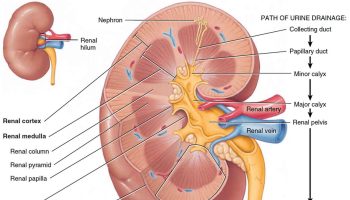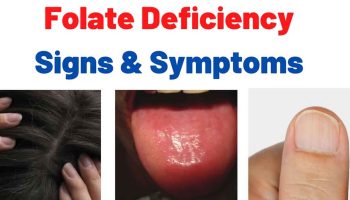Contents
What is somatic symptom disorder
Somatic symptom disorder involves a person having a significant focus on physical symptoms, such as pain, weakness, fatigue or shortness of breath, that results in major distress and/or problems functioning. The individual has excessive thoughts, feelings and behaviors relating to the physical symptoms. You may or may not have another diagnosed medical condition associated with these symptoms, but the person is experiencing symptoms and believes they are sick (that is, not faking the illness).
Excessive thoughts, feelings and behaviors in response to physical symptoms may lead to frequent doctor visits. You often think the worst about your symptoms and continue to search for an explanation, even when other serious conditions have been excluded. Health concerns may become such a central focus of your life that it’s hard to function, sometimes leading to disability.
Often at the center is uncertainty and lack of trust in your own ability to tell the difference between normal bodily sensations and those that signal harm. It can be very challenging for individuals, family members and healthcare professionals alike to tell if new symptoms relate to a major illness or routine feelings of discomfort.
Further complicating the picture is the fact that often people with the disorder have ongoing chronic illnesses which can change and worsen over time. The art of managing somatic symptom disorders is therefore balancing the need for a prudent medical evaluation with over-diagnosis and over-treatment. This balance can only be achieved through a trusting relationship with a knowledgeable clinician, usually a primary care provider or primary care team.
A person is not diagnosed with somatic symptom disorder solely because a medical cause can’t be identified for a physical symptom. The emphasis is on the extent to which the thoughts, feelings and behaviors related to the illness are excessive or out of proportion.
Somatic symptom disorder diagnosis 1:
- One or more somatic symptoms that are distressing or cause disruption in daily life
- Excessive thoughts, feelings or behaviors related to the somatic symptoms or health concerns as shown by at least one of the following:
- Disproportionate and ongoing thoughts about the seriousness of symptoms
- Ongoing high level of anxiety about health or symptoms
- Excessive time and energy spent on the symptoms or health concerns
- At least one symptom is constantly present (typically more than six months), although there may be different symptoms and symptoms may come and go
People with somatic symptom disorder typically go to a primary care provider rather than psychiatrist or other mental health professional. They often refuse to believe their symptoms are the result of mental or emotional causes rather than physical causes. Somatic symptom disorder usually begins by age 30.
If you have somatic symptom disorder, you may experience significant emotional and physical suffering. Treatment can help ease symptoms, help you cope and improve your quality of life.
Somatic symptom disorder complications
Somatic symptom disorder can be associated with:
- Poor health
- Problems functioning in daily life, including physical disability
- Problems with relationships
- Problems at work or unemployment
- Other mental health disorders, such as anxiety, depression and personality disorders
- Increased suicide risk related to depression
- Financial problems due to excessive health care visits
Somatic symptom disorder vs Illness anxiety disorder
Illness anxiety disorder involves a person preoccupied with having an illness or getting an illness – constantly worrying about their health. They may frequently check themselves for signs of illness, focus on health behaviors and take extreme precautions to avoid health risks. This condition was previously referred to as “hypochondriasis.” Unlike somatic symptom disorder, a person with illness anxiety disorder generally doesn’t experience symptoms.
Somatic symptom disorder causes
The exact cause of somatic symptom disorder isn’t clear, but any of these factors may play a role:
- Genetic and biological factors, such as an increased sensitivity to pain
- Family influence, which may be genetic or environmental, or both
- Personality trait of negativity, which can impact how you identify and perceive illness and bodily symptoms
- Decreased awareness of or problems processing emotions, causing physical symptoms to become the focus rather than the emotional issues
- Learned behavior — for example, the attention or other benefits gained from having an illness; or “pain behaviors” in response to symptoms, such as excessive avoidance of activity, which can increase your level of disability
Risk factors for somatic symptom disorder
Risk factors for somatic symptom disorder include:
- Having anxiety or depression
- Having a medical condition or recovering from one
- Being at risk of developing a medical condition, such as having a strong family history of a disease
- Experiencing stressful life events, trauma or violence
- Having experienced past trauma, such as childhood sexual abuse
- Having a lower level of education and socio-economic status
Somatic symptom disorder prevention
Little is known about how to prevent somatic symptom disorder. However, these recommendations may help.
- If you have problems with anxiety or depression, seek professional help as soon as possible.
- Learn to recognize when you’re stressed and how this affects your body — and regularly practice stress management and relaxation techniques.
- If you think you have somatic symptom disorder, get treatment early to help stop symptoms from getting worse and impairing your quality of life.
- Stick with your treatment plan to help prevent relapses or worsening of symptoms.
Somatic symptom disorder symptoms
Symptoms of somatic symptom disorder may be:
- Specific sensations, such as pain or shortness of breath, or more general symptoms, such as fatigue or weakness
- Unrelated to any medical cause that can be identified, or related to a medical condition such as cancer or heart disease, but more significant than what’s usually expected
- A single symptom, multiple symptoms or varying symptoms
- Mild, moderate or severe
Pain is the most common symptom, but whatever your symptoms, you have excessive thoughts, feelings or behaviors related to those symptoms, which cause significant problems, make it difficult to function and sometimes can be disabling.
Excessive thoughts, feelings and behaviors can include:
- Having a high level of worry about potential illness
- Considering normal physical sensations as a sign of severe physical illness
- Fearing the medical seriousness of symptoms, even when there is no evidence to support that concern
- Appraising physical sensations as threatening, harmful or causing problems
- Feeling that medical evaluation and treatment have not been adequate
- Fearing that physical activity may cause damage to your body
- Repeatedly checking your body for abnormalities
- Frequent health care visits that don’t relieve your concerns or that make them worse
- Being unresponsive to medical treatment or unusually sensitive to medication side effects
- Having a more severe impairment than would usually be expected related to a medical condition
For somatic symptom disorder, more important than the specific physical symptoms you experience is the way you interpret and react to the symptoms and how they impact your daily life.
Somatic symptom disorder diagnosis
To determine a diagnosis, you’ll likely have a physical exam and any tests your doctor recommends. Your doctor or other health care provider can help determine if you have any health conditions that need treatment.
Your doctor may also refer you to a mental health provider. He or she may:
- Conduct a psychological evaluation to talk about your symptoms, stressful situations, family history, fears or concerns, relationship problems, and other issues affecting your life
- Have you fill out a psychological self-assessment or questionnaire
- Ask you about alcohol, drug or other substance use
Criteria for diagnosis
The Diagnostic and Statistical Manual of Mental Disorders (DSM-5), published by the American Psychiatric Association, emphasizes these points in the diagnosis of somatic symptom disorder:
- You have one or more somatic symptoms that are distressing or result in problems with your daily life
- You have excessive and persistent thoughts about the seriousness of your symptoms, you have a persistently high level of anxiety about your health or symptoms, or you devote too much time and energy to your symptoms or health concerns
- You continue to have symptoms that concern you, typically for more than six months, even though the symptoms may vary
Somatic symptom disorder DSM 5
Somatic symptom disorder DSM 5 diagnostic criteria 1
- A. One or more somatic symptoms that are distressing or result in significant disruption of daily life.
- B. Excessive thoughts, feelings, or behaviors related to the somatic symptoms or associated health concerns as manifested by at least one of the following:
- 1. Disproportionate and persistent thoughts about the seriousness of one’s symptoms.
- 2. Persistently high level of anxiety about health or symptoms.
- 3. Excessive time and energy devoted to these symptoms or health concerns.
- C. Although any one somatic symptom may not be continuously present, the state of being symptomatic is persistent (typically more than 6 months) .
Specify if:
- With predominant pain (previously pain disorder): This specifier is for individuals whose somatic symptoms predominantly involve pain.
Specify if:
- Persistent: A persistent course is characterized by severe symptoms, marked impairment, and long duration (more than 6 months) .
Specify current severity:
- Mild: Only one of the symptoms specified in Criterion B is fulfilled.
- Moderate: Two o r more of the symptoms specified in Criterion B are fulfilled.
- Severe: Two or more of the symptoms specified in Criterion B are fulfilled, plus there are multiple somatic complaints (or one very severe somatic symptom).
Individuals with somatic symptom disorder typically have multiple, current, somatic symptoms that are distressing or result in significant disruption of daily life (Criterion A), although sometimes only one severe symptom, most commonly pain, is present. Symptoms may be specific (e.g., localized pain) or relatively nonspecific (e.g., fatigue). The symptoms sometimes represent normal bodily sensations or discomfort that does not generally signify serious disease. Somatic symptoms without an evident medical explanation are not sufficient to make this diagnosis. The individual’s suffering is authentic, whether or not it is medically explained.
The symptoms may or may not be associated with another medical condition. The diagnoses of somatic symptom disorder and a concurrent medical illness are not mutually exclusive, and these frequently occur together. For example, an individual may become seriously disabled by symptoms of somatic symptom disorder after an uncomplicated myocardial infarction even if the myocardial infarction itself did not result in any disability. If another medical condition or high risk for developing one is present (e.g., strong family history), the thoughts, feelings, and behaviors associated with this condition are excessive (Criterion B).
Individuals with somatic symptom disorder tend to have very high levels of worry about illness (Criterion B). They appraise their bodily symptoms as unduly threatening, harmful, or troublesome and often think the worst about their health. Even when there is evidence to the contrary, some patients still fear the medical seriousness of their symptoms. In severe somatic symptom disorder, health concerns may assume a central role in the individual’s life, becoming a feature of his or her identity and dominating interpersonal relationships.
Individuals typically experience distress that is principally focused on somatic symptoms and their significance. When asked directly about their distress, some individuals describe it in relation to other aspects of their lives, while others deny any source of distress other than the somatic symptoms. Health-related quality of life is often impaired, both physically and mentally. In severe somatic symptom disorder, the impairment is marked, and when persistent, the disorder can lead to invalidism.
There is often a high level of medical care utilization, which rarely alleviates the individual’s concerns. Consequently, the patient may seek care from multiple doctors for the same symptoms. These individuals often seem unresponsive to medical interventions, and new interventions may only exacerbate the presenting symptoms. Some individuals with the disorder seem unusually sensitive to medication side effects. Some feel that their medical assessment and treatment have been inadequate.
Somatic symptom disorder treatment
Somatic symptom disorder is a complex illness that calls for consistent and reassuring relationships with confident and supportive healthcare providers.
Treatment for somatic symptom disorder is intended to help control symptoms and help the person function as normally as possible.
Treatment for somatic symptom disorder typically involves the person having regular visits with a trusted health care provider. The provider can provide support and reassurance, monitor heath and symptoms, and avoid unnecessary tests and treatments. Psychotherapy can help the individual change the thinking and behavior, and learn ways to cope with pain or other symptoms, deal with stress and improve functioning.
Antidepressant or anti-anxiety medications can be useful if the person is also experiencing depression or anxiety.
Psychotherapy
Because physical symptoms can be related to psychological distress and a high level of health anxiety, psychotherapy — also called talk therapy — can help improve physical symptoms.
Cognitive behavioral therapy can help you:
- Examine and adapt your beliefs and expectations about health and physical symptoms
- Learn how to reduce stress
- Learn how to cope with physical symptoms
- Reduce preoccupation with symptoms
- Reduce avoidance of situations and activities due to uncomfortable physical sensations
- Improve daily functioning at home, at work, in relationships and in social situations
- Address depression and other mental health disorders
Family therapy may also be helpful by examining family relationships and improving family support and functioning.
Medications
Antidepressant medication can help reduce symptoms associated with depression and pain that often occur with somatic symptom disorder.
If one medication doesn’t work well for you, your doctor may recommend switching to another or combining certain medications to boost effectiveness. Keep in mind that it can take several weeks after first starting a medication to notice an improvement in symptoms.
Talk with your doctor about medication options and the possible side effects and risks.
Home remedy
While somatic symptom disorder benefits from professional treatment, you can take some lifestyle and self-care steps, including these:
- Work with your provider. Work with your doctor and mental health provider to determine a regular schedule for visits to discuss your concerns and build a trusting relationship. Also discuss setting reasonable limits on tests, evaluations and specialist referrals. Avoid seeking advice from multiple doctors or emergency room visits that can make your care more difficult to coordinate and may subject you to duplicate testing.
- Practice stress management and relaxation techniques. Learning stress management and relaxation techniques, such as progressive muscle relaxation, may help improve symptoms.
- Get physically active. A graduated activity program may have a calming effect on your mood, improve your physical symptoms and help improve your physical function.
- Participate in activities. Stay involved in work, social and family activities. Don’t wait until your symptoms are resolved to participate.
Avoid alcohol and recreational drugs. Substance use can make your care more difficult. Talk to your health care provider if you need help quitting.
How can family members best support and help someone with somatic symptom disorder?
Family members can assist an individual with somatic symptom disorders with ongoing support and understanding, and encouragement of stable and consistent healthcare relationships. Additionally, family members can help to follow treatment plans that aim to avoid urgent and emergent medical care settings in favor of outpatient appointments with a consistent provider. Family can also assist the person suffering to track and record symptom information for later discussion with his/her provider. Family members can also play a valuable role in reassurance and communication with the person’s healthcare team.
It’s important to also acknowledge the toll these symptoms can take in loss of functioning, and to express empathy with the shared fear and confusion that inevitably occur with these disorders. Spouses and family members can avoid direct confrontation about the truthfulness of the symptoms and help the person identify creative and practical solutions and coping strategies that can minimize the problems caused by the symptoms. Recognizing the emotional toll of feeling isolated through this process and encouraging attention to mental health concerns that could be framed as “side effects” of these symptoms may be a segue into more formal mental health treatments. Furthermore, spouses can help through the profession of unconditional love and support.





